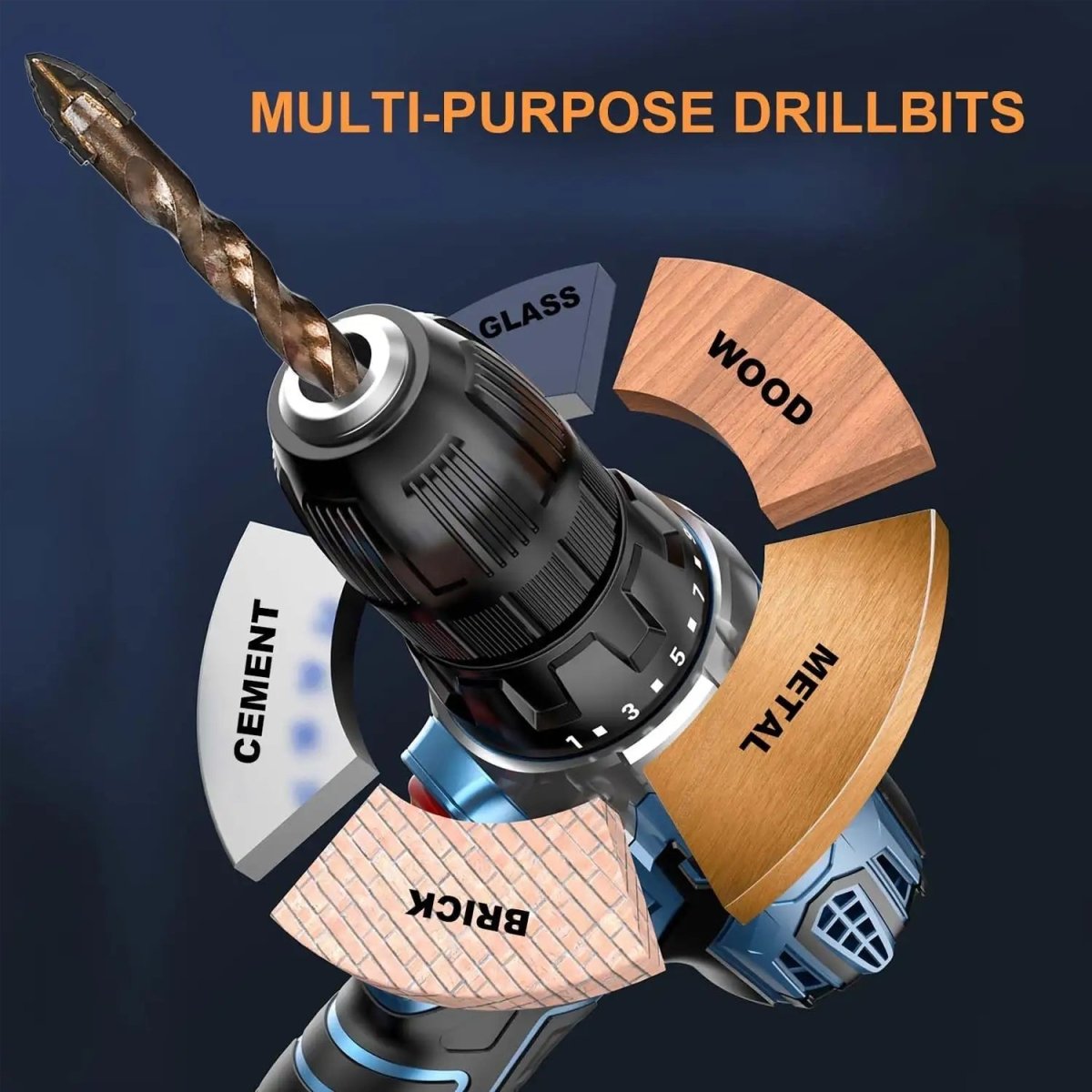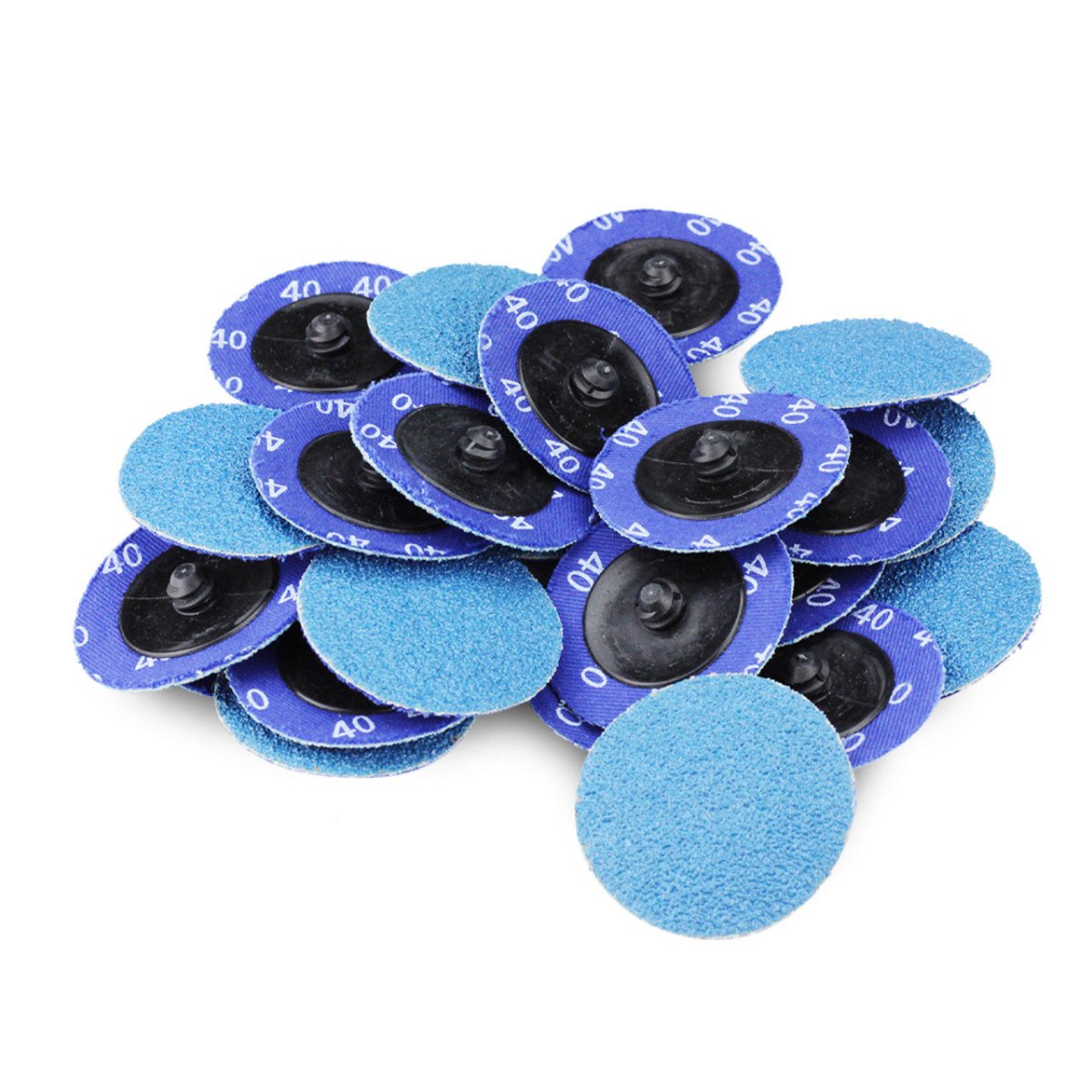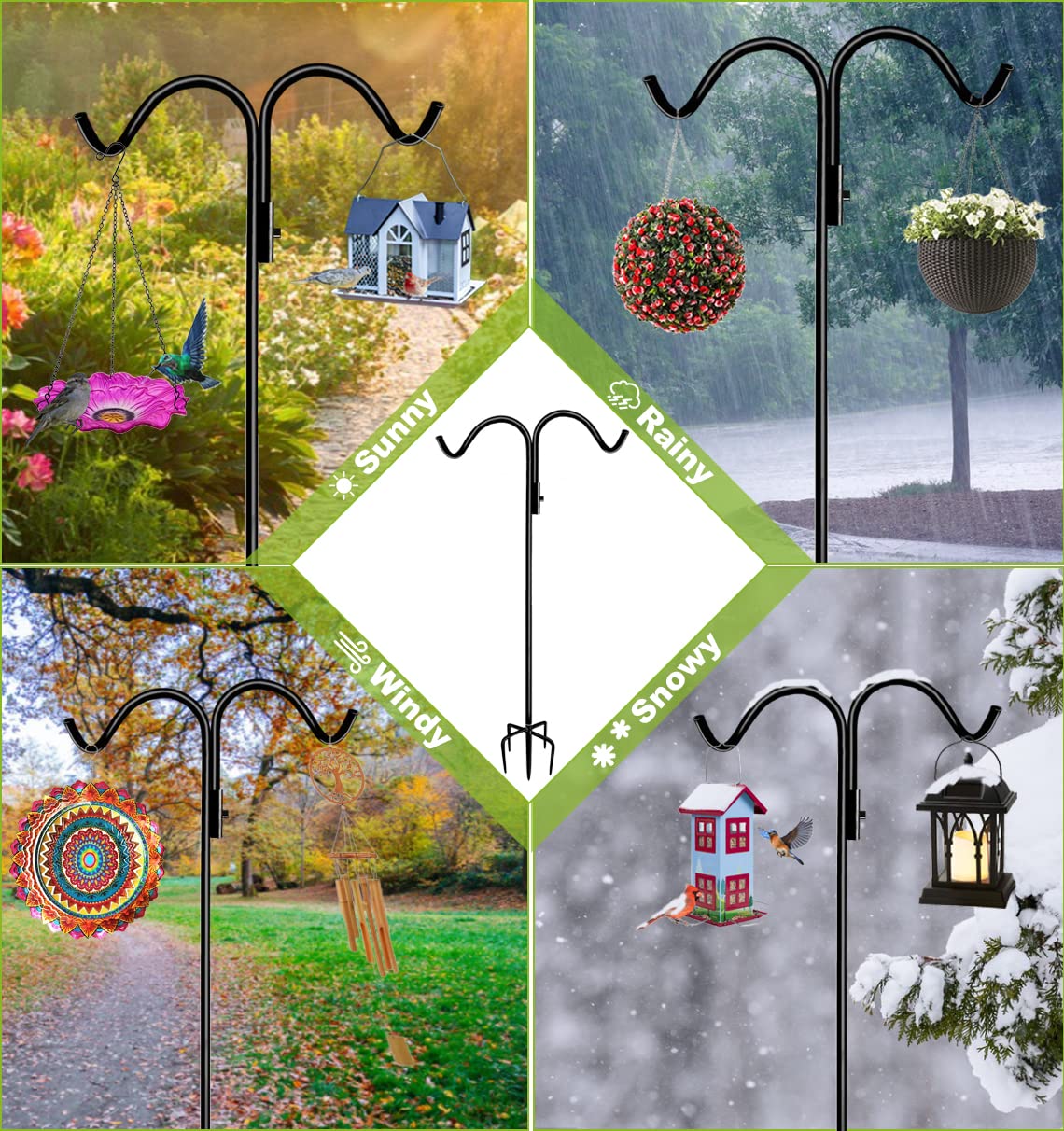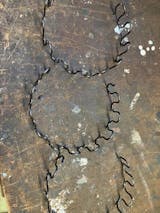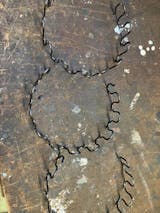- Introduction
- Common Uses of Drill Bits
- Types of Drill Bits
- Drill Bit Materials
- How to Choose the Right Drill Bit
- Drill Bit Maintenance
- Drill Bits in Home Renovation
- Drill Bits in Automotive Repair
- Industrial & Professional Applications Of Drill Bits
- Frequently Asked Questions About Drill Bits
- Conclusion
Introduction
Drill bits are cutting tools designed to create holes in different materials. They are usually made of hardened steel or carbide and are used with power drills. From construction sites to home garages, drill bits are among the most commonly used tools. Our 10pcs High-Strength Eccentric Twist Drill Bit Set is a great example of versatile, durable bits for everyday projects.
Common Uses of Drill Bits
Drill bits are not limited to just making holes. They serve multiple purposes depending on the type of bit and the material:
Woodworking: Creating pilot holes, countersinks, or dowel joints.
Metalworking: Drilling through steel, aluminum, or brass sheets.
Masonry: Boring into concrete, stone, or brick using masonry bits.
DIY Projects: Hanging shelves, assembling furniture, or crafting.
Precision Engineering: Machining fine holes in tools and components.
Types of Drill Bits
There are many types of drill bits, each designed for specific tasks. Below is a comparison table:
| Type of Drill Bit | Best For | Features |
|---|---|---|
| Twist Bit | Wood, plastic, metal | Most common, spiral design for general use |
| Brad Point Bit | Wood | Sharp center point for accurate positioning |
| Spade Bit | Wood | Flat blade, ideal for large rough holes |
| Masonry Bit | Brick, stone, concrete | Carbide tip, used with hammer drills |
| Forstner Bit | Wood | Flat-bottom holes, precise cutting |
| Step Bit | Thin metal, plastic | Multiple hole sizes in one bit |
Drill Bit Materials
The material of a drill bit determines its durability and effectiveness. Common drill bit materials include:
| Material | Properties | Applications |
|---|---|---|
| High-Speed Steel (HSS) | Affordable, durable | Wood, plastic, soft metals |
| Cobalt Steel | Heat-resistant | Stainless steel, hardened metals |
| Carbide | Extremely hard, brittle | Ceramics, masonry, heavy-duty drilling |
| Titanium-coated HSS | Reduced friction, long lifespan | General use with smoother drilling |
How to Choose the Right Drill Bit
Choosing the right drill bit depends on three main factors:
Material: Match the bit material to the workpiece (wood, metal, concrete).
Hole Size: Select the correct diameter for screws, anchors, or bolts.
Drill Type: Ensure compatibility with standard, hammer, or impact drills.
For everyday DIY tasks, a twist drill bit set is versatile and practical.
Drill Bit Maintenance
Proper care ensures your drill bits last longer:
- Keep drill bits sharp—use a sharpener or replace dull bits.
- Store bits in a case to prevent damage.
- Use the correct speed and pressure to avoid overheating.
- Apply cutting oil when drilling metals to reduce friction.
Drill Bits in Home Renovation 🏡
Homeowners often rely on drill bits for tasks such as installing shelves, hanging curtains, or assembling furniture. For example:
- Hanging Pictures: Small pilot holes for anchors prevent wall cracking.
- Installing Cabinets: Precision drilling into wood studs ensures stability.
- Flooring Projects: Masonry bits help secure anchors in concrete subfloors.
A reliable set like our eccentric twist drill bits saves time and ensures clean results.
Drill Bits in Automotive Repair 🚗
In the automotive world, drill bits are essential for repairs and modifications:
- Rust Removal: Drilling out corroded bolts and screws.
- Custom Modifications: Creating holes for aftermarket parts or wiring.
- Metal Repairs: Using cobalt bits to drill through hardened steel.
Car enthusiasts and mechanics often keep multiple drill bit sizes on hand to adapt to different repair tasks.
Industrial & Professional Applications Of Drill Bits⚙️
In industrial settings, drill bits are pushed to their limits:
- Construction: Masonry bits for drilling concrete foundations.
- Manufacturing: Precision carbide bits in CNC machines.
- Plumbing & Electrical: Hole saws and spade bits for pipe and cable runs.
Here, durability and precision are critical—making high-strength drill bits indispensable.
Frequently Asked Questions About Drill Bits ❓
Q: Can one drill bit work for all materials?
A: Not effectively. Wood, metal, and masonry each require specific types of drill bits.
Q: How often should I replace my drill bits?
A: Replace them when they become dull, chipped, or cause rough holes. High-quality sets like our eccentric twist drill bits last longer with proper care.
Q: What size drill bit should I use for screws?
A: A pilot hole should be slightly smaller than the screw’s core diameter. For softwood, match the screw core; for hardwood, go slightly larger.
Q: Do I need special drill bits for stainless steel?
A: Yes, cobalt steel bits or carbide-tipped bits are recommended.
Conclusion
Drill bits are the unsung heroes of construction and DIY. From woodworking to heavy-duty masonry projects, choosing the right bit ensures precision, efficiency, and durability. Investing in a quality set—like our 10pcs High-Strength Eccentric Twist Drill Bit Set—is essential for anyone serious about their projects.

